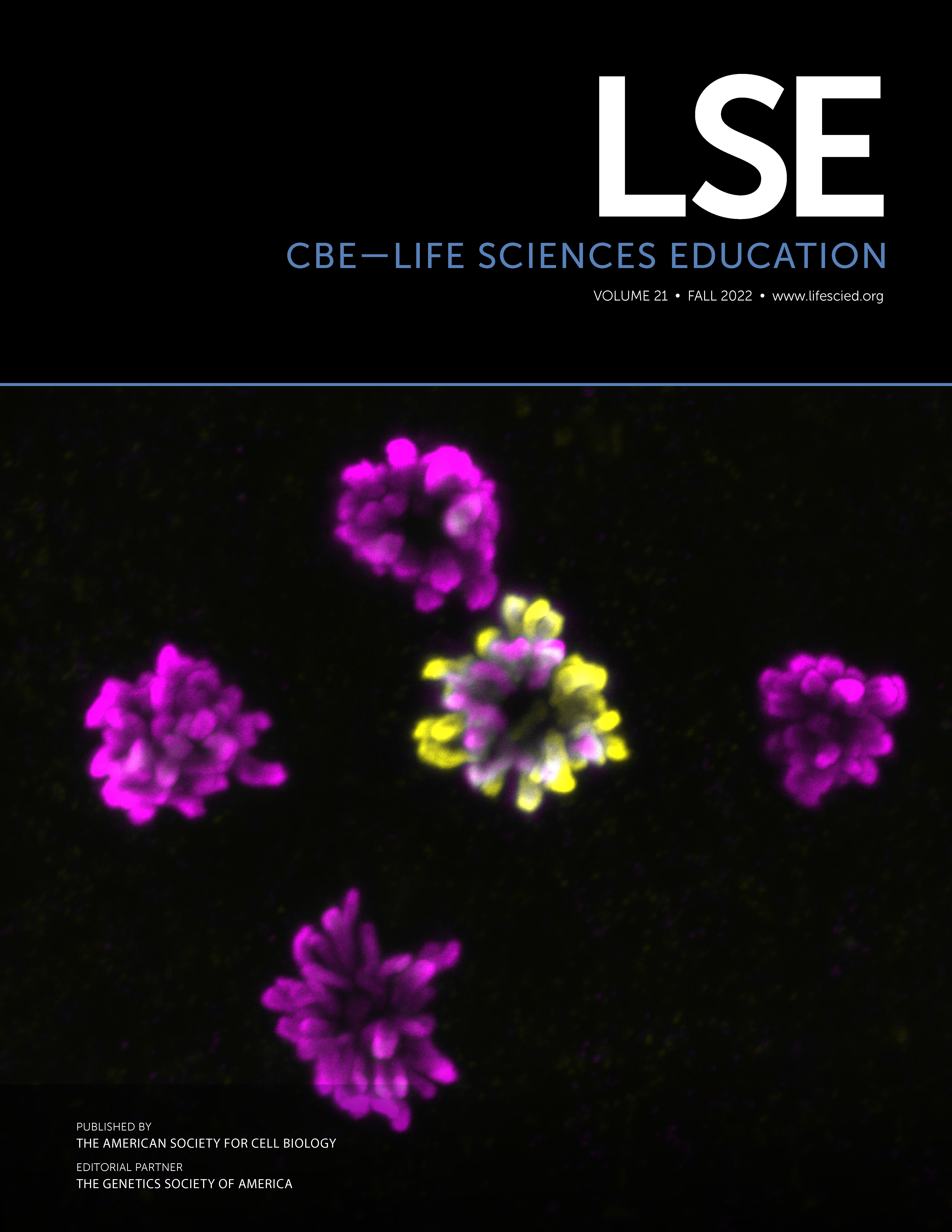Which Group Dynamics Matter: Social Predictors of Student Achievement in Team-Based Undergraduate Science Classrooms
Abstract
While group work in undergraduate science education tends to have overall benefit, less is known about the specific peer–peer dynamics that optimize learning during group interaction. The current study used peer ratings and self-reported data from 436 students enrolled in team-based undergraduate science courses (biology or chemistry) to determine group dynamics that predicted both willingness to work with peers in the future and individual achievement in the course. Results show that greater personal connection and contributions predicted willingness to work with a group member (R2biology = 0.75; R2chemistry = 0.59). While active contribution to a group predicted greater achievement, more noncontent interactions (e.g., encouragement, listening to feedback, being polite) predicted lower achievement, despite these being on-task and relevant. Additionally, having group members who were willing to continue working with a student was a positive predictor of that student’s achievement regardless of course. Strikingly, students in chemistry were significantly less willing to work with women in their groups compared with men. Finally, not all forms of group conflict predict decreased achievement. These findings highlight group factors such as student behavior within the group, aspects of the group social environment, and peer support that can be targeted for optimizing undergraduate science learning.



